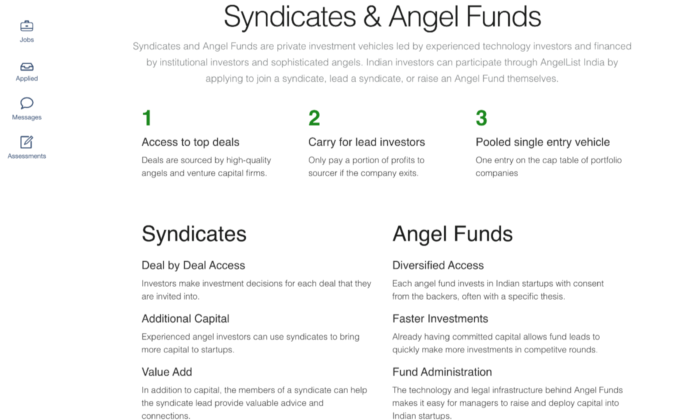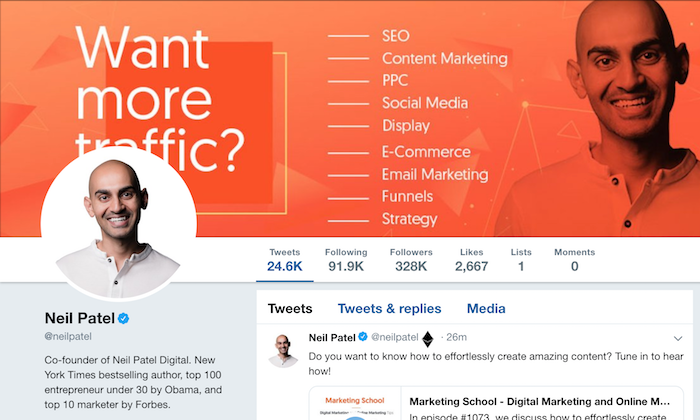The Youth Symphony Orchestra of Ukraine is evacuating some of its members from Ukraine, in partnership with another orchestra in Slovenia.
Author: Loren Ford
New comment by doxray in "Ask HN: Who is hiring? (February 2022)"
doXray | ML Engineer | Europe
doXray is a remote-first company that develops solutions for AI use-cases in the Legal, Real Estate, and Services industry.
We are seeking an experienced Machine Learning Engineer to join our ML team, and help us extend the capabilities of our ML platform: a multi-component system designed to enable smoother onboarding of new use-cases regardless of input data (image, text) and downstream task, optimize resource utilization (training, annotation, storage), and increase the overall quality of service by improving performance tracking, data profiling, and pipeline orchestration. You will be working within a cross-functional team consisting of Data and ML Engineers and Researchers, closely collaborating with our Annotation, Infra, and Application teams.
Contact us at careers@doxray.com.
More details about the role and benefits https://doxray.com/machine-learning-engineer
UM to wear jersey patch honoring Oxford victims
Michigan will wear a special patch in the Big Ten title game on Saturday to honor the four Oxford High School students who were killed in this week’s shooting.
The post UM to wear jersey patch honoring Oxford victims appeared first on Buy It At A Bargain – Deals And Reviews.
New comment by Rendello in "Ask HN: Who wants to be hired? (November 2021)"
Location: Ottawa, ON, Canada
Remote: Yes (remote or local)
Willing to relocate: No
Technologies: Python, Lua, C, Zig.
Résumé: http://rendello.ca/resume/
Email: gaven@rendello.ca
I’m a jack-of-all-trades kind of programmer, I would love to talk.
My resume is available in PDF and Man Page format, for your convenience.
Generally Intelligent (YC S17) Looking for Machine Learning Research Engineers
11 Marketing Instagram Accounts to Follow
Are you tired of scrolling your Instagram feed for digital inspiration and are coming up short?
We know the feeling.
That’s why we sought out the best digital marketing accounts to follow and added them to our feed.
Whether you’re looking for actionable tips to enact in your classic campaigns, inspiring stories of grass-roots marketing, or posts that will change your perspective, our diverse list of 11 digital marketing Instagram accounts to follow has something for everyone.
In addition to general knowledge-sharing, all 11 individuals have unique voices and styles, bringing a welcome break to marketing content that looks identical to all of its contemporaries.
Read on to learn more about the 11 individuals who topped our most-follow list (in no particular order 😉 ).
1. Neil Patel

Handle: @NeilPatel
Follower Count: 269k
Niche: Digital marketing
Why Neil is Successful: A top 100 entrepreneur under the age of 35, Neil makes the complexities of digital marketing easy for the average reader.
What Neil is Known For: A massive figure in the digital world, Neil is known for entrepreneurial disruption of the digital marketing field, as well as his agency.
Why You Should Follow Neil: If you’re looking to sharpen your digital arsenal, Neil is a must-follow. His posts range from landing page hacks to the transformative power of color. Even though we may seem a little biased, his other 267k followers definitely aren’t.
2. Gary Vaynerchuk

Handle: @garyvee
Follower Count: 9.1m followers
Niche: Entrepreneurship, investment, mindset
Why Gary is Successful: Credited with turning his family’s brick-and-mortar liquor business into the first online booze provider, Gary has an entrepreneurial mindset and a unique understanding of the demands of the digital world.
What Gary is Known For: While Gary may have found his footing in booze, he is now a huge figure in the entrepreneurial space. He covers all sorts of topics, from NFTs to how to deal with failure.
Why You Should Follow Gary: With video content that delivers day after day, Gary sounds off on the latest trends, serving as a weathervane for the digital community, as well as informational videos about leadership and self-care.
3. Jay Baer

Handle: @jaybaer
Follower Count: 17.6k
Niche: Digital marketing with a side of entrepreneurship
Why Jay is Successful: As a seventh-generation entrepreneur, Jay knows a thing or two about starting businesses. Founder of five multi-million dollar companies, his latest venture is Convince and Convert, a highly sought-after digital marketing firm.
What Jay is Known For: Working with high-profile brands on innovative marketing campaigns, including Kindred Healthcare, Arizona State University, and Hilton.
Why You Should Follow Jay: Jay made our Instagram accounts to follow list for incredible podcasts featuring notable figures discussing digital marketing strategies their companies have utilized, as well as daily industry takeaways.
4. Lilach Bullock

Handle: @lilachbullock
Follower Count: 2,672
Niche: Business and mindset for female entrepreneurs
Why Lilach is Successful: More than business strategy, Lilach draws on the power of a positive mindset as a force to supercharge entrepreneurial success.
What Lilach is Known For: As a coach who believes in the power of positive thinking, Lilach is known for helping businesses go from zero to 60 through her unique strategies and exercises.
Why You Should Follow Lilach: Follow Lilach if you need inspirational content, as well as practical tips for overall marketing strategy.
5. Ann Handley

Handle: @annhandley
Follower Count: 24.1k
Niche: Writing for every medium
Why Ann is Successful: Named one of seven people influencing modern marketing, Ann is a digital maverick, leading the pack with her company MarketingProfs.
What Ann is Known For: Known for her inventive tactics and compelling writing ability, Ann has worked on campaigns for household names like Adobe and the Mayo Clinic.
Why You Should Follow Ann: Follow Ann if you’re looking for tips and tricks to master writing on any platform or form.
6. Eric Siu

Handle: @ericosiu
Follower Count: 26.7k
Niche: Personal and professional transformation
Why Eric is Successful: An active gamer in his youth, Eric translated his on-screen skills in gaming into a highly successful digital marketing career.
What Eric is Known For: His book, Leveling Up, gives readers advice for living the life they’ve always dreamed of leading.
Why You Should Follow Eric: If you have a background in gaming, Eric should top your list of digital marketing Instagram accounts to follow. Most of his posts use video game imagery and share advice for succeeding in both life and marketing.
7. Rand Fishkin

Handle: @randderuiter
Follower Count: 9,700
Niche: Market research
Why Rand is Successful: Rand speaks frankly and with humor, as shown in his book Lost and Founder: A Painfully Honest Guide to the Startup World. His communication style is one of the keys to his success.
What Rand is Known For: Co-founder of Moz, Rand knows all there is to know about search engine optimization (SEO). Today he heads up SparkToro, a market search and audience intelligence platform.
Why You Should Follow Rand: Self-proclaimed pasta-based life form, Rand’s account features pasta content, as well as findings from his marketing surveys and research.
8. Sorav Jain

Handle: @soravjain
Follower Count: 223k
Niche: Teaching digital
Why Sorav is Successful: One of India’s top digital marketing experts, Sorav started his career at just 17 as an SEO executive. Committed to the art of teaching, Sorav makes complex content simple through his courses and instructionals.
What Sorav is Known For: Sorav leads echoVME, where he works with the best digital marketers in the country. His notable clients include CashKaro.com and XCode Life Sciences.
Why You Should Follow Sorav: Dedicated to teaching, Sorav’s Instagram feed is brimming with content that can help you get answers to your most challenging digital marketing questions. Follow him for everything from Canva updates to Instagram Reel strategies.
9. Larry Kim

Handle: @kim_larry
Follower Count: 45.5k
Niche: Automation
Why Larry is Successful: Founder and former CTO of WordStream, Larry has tenured experience in the digital realm. In addition, Larry has a deep understanding of PPC marketing, AdWords, and SEO, born from his continuous industry success.
What Larry is Known For: Best known for founding MobileMonkey, the chatbot messaging platform used by Facebook Messenger, Web Chat, and SMS.
Why You Should Follow Larry: Follow Larry for easily accessible graphics that share information on everything from Twitter design tips for more engagement to tools for AI-based copywriting.
10. Jasmine Star

Handle: @jasminestar
Follower Count: 450k
Niche: Photography and branding
Why Jasmine is Successful: Jasmine melded her passion for photography with a canny understanding of branding and brand marketing. After achieving personal success as a photographer, she set out to share her strategies with the world.
What Jasmine is Known For: Helping business owners turn their dreams into reality through strategic planning and savvy digital marketing.
Why You Should Follow Jasmine: Outside of the fact that her Instagram feed is gorgeous, Jasmine serves up content (a lot of it video) that shares tips and tricks for marketers navigating the digital sphere.
11. Mari Smith

Handle: @mari_smith
Follower Count: 40.4k
Niche: Facebook marketing
Why Mari is Successful: With a deep understanding of the inner workings of Facebook marketing, Mari can create immersive strategies for brands to help them increase reach and capitalize on their spending.
What Mari is Known For: Often referred to as the Queen of Facebook, Mari is considered one of the world’s true Facebook marketing experts. She has worked with notable clients and earned Forbes’ title of One of the Top Ten Social Media Power Influencers several years in a row.
Why You Should Follow Mari: If you’re looking to up your Facebook marketing game, look no further. Her account offers helpful tips and tricks for unpacking marketing trends, among a ton of other insightful topics.
Frequently Asked Questions About Marketing Instagram Accounts to Follow
What Are the Best Marketing Instagram Accounts to Follow?
A few of our favorite digital marketing figures include:
- Jasmine Star @jasminestar
- Sorav Jain @soravjain
- Jay Baer @jaybaer
These are just three of a list of eleven who are must-follows.
What kinds of content do marketing influencers share?
Marketing influencers share all sorts of content. Among our diverse list of 11 marketing Instagram accounts to follow, you can find everything from videos on NFTs to tips for creating a mood board for your next photo shoot.
How can I find new marketing Instagram accounts to follow?
While we’ve compiled a list of 11 inspiring marketing figures, this list is only the tip of the iceberg. To find even more inspiration, explore who these individuals are following, as well as hashtags like #digitalmarketing, #SEO, #FacebookMarketing, and any other tags that are relevant to your goals.
Where can I find marketing inspiration?
Instagram is a perfect venue for finding marketing inspiration. Given the multi-photo format, reels, and stories, marketing figures are better equipped than ever before with tools to share their best practices with their followers.
{
“@context”: “https://schema.org”,
“@type”: “FAQPage”,
“mainEntity”: [
{
“@type”: “Question”,
“name”: “What Are the Best Marketing Instagram Accounts to Follow?”,
“acceptedAnswer”: {
“@type”: “Answer”,
“text”: ”
A few of our favorite digital marketing figures include:
Jasmine Star @jasminestarSorav Jain @soravjainJay Baer @jaybaer
These are just three of a list of eleven who are must-follows.
”
}
}
, {
“@type”: “Question”,
“name”: “What kinds of content do marketing influencers share?”,
“acceptedAnswer”: {
“@type”: “Answer”,
“text”: ”
Marketing influencers share all sorts of content. Among our diverse list of 11 marketing Instagram accounts to follow, you can find everything from videos on NFTs to tips for creating a mood board for your next photo shoot.
”
}
}
, {
“@type”: “Question”,
“name”: “How can I find new marketing Instagram accounts to follow?”,
“acceptedAnswer”: {
“@type”: “Answer”,
“text”: ”
While we’ve compiled a list of 11 inspiring marketing figures, this list is only the tip of the iceberg. To find even more inspiration, explore who these individuals are following, as well as hashtags like #digitalmarketing, #SEO, #FacebookMarketing, and any other tags that are relevant to your goals.
”
}
}
, {
“@type”: “Question”,
“name”: “Where can I find marketing inspiration?”,
“acceptedAnswer”: {
“@type”: “Answer”,
“text”: ”
Instagram is a perfect venue for finding marketing inspiration. Given the multi-photo format, reels, and stories, marketing figures are better equipped than ever before with tools to share their best practices with their followers.
”
}
}
]
}
Instagram Accounts to Follow: Conclusion
Whether you’re looking for a feed that makes excellent use of aesthetics and color that happens to come with marketing tips or a more financially minded approach, these 11 accounts have something for every marketer.
As you explore the topics that are most aligned with your marketing goals, be sure not to limit yourself to the highlighted profiles.
To engage further with the marketing Instagram community, explore hashtags that are relevant to your interests. Then, as you become more familiar with the community, start using your #digitalmarketing hashtags to involve yourself even more in the conversation.
Who knows? Maybe you’ll land on our next Marketing Instagram Accounts to Follow list!
Who is your favorite marketing influencer on Instagram?
How to Start a Business
Disclosure: This content is reader-supported, which means if you click on some of our links that we may earn a commission.
Anyone can start up a business. No college degree, huge bank balance, or corporate experience necessary.
All you need is a great idea, the right systems, and the drive to see it through.
Since you’re already searching for ways to learn about how to start a business, odds are you already have an idea and the drive. What you need to know is how to start building your future empire.
In this article, I’m going to discuss the exact steps to start a business so that you can put the right systems in place.
Your 2-Minute Cheat Sheet
I’ll walk through each step in much greater detail below. Here, I want to give you the bare-bones cheat sheet for how to start a business now.
First, refine your idea based on the needs and demands of your target customers, along with your preferences.
Next, you’ll create a business plan. This is a crucial part of the whole process, so you have to get this right.
After sketching out your business’s entire framework, do market research, and collect feedback from friends, mentors, and family.
Then you need to tackle the legal side of things. Get started early in case there are any snags. This includes deciding your business structure, registering your business, getting the necessary license and permits, and setting up bank accounts.
At this point, you have your idea and a plan to make it come to life. You can then use it to arrange for the required capital to launch your product or service. Follow this up by building your team and finding a location if you’re opening a physical store.
Finally, focus your efforts on generating more sales and growing your business, which is also what you’ll find yourself doing for most of your career.
That’s a few years of business distilled to a couple paragraphs. Let’s take a closer look at each step. Of course you should feel free to skip steps if you have already locked down the basics.
- Come Up With a Business Idea
- Conduct Market Research
- Lock Down the Legal Stuff
- Write Your Business Plan
- Raise Capital for Your Business
- Develop Your Product or Service
- Build a Reliable and Responsible Team
- Find a Business Location
- Work On Generating Sales
- Expand Your Business
Step 1: Come Up With a Business Idea
Every business begins with an idea. If you already have one, congratulations! You can proceed to the next step. If not, you need to start brainstorming.
Here are a few tips to come up with a great business idea (I made a list of over 25 home-based businesses as well):
- Think of ways to get ahead of the curve. Think of how your product or service can change the business landscape, especially with the constant technological advancements.
- Solve a problem you identify. After all, your customers would prefer more of a good thing and less of a bad thing.
- Try to bring a fresh perspective that helps you gain a competitive edge over your competitors.
- Think of ways to make your approach better, cheaper, and faster if your business idea isn’t new.
At this stage, you can also conduct surveys and collect perspectives by meeting people and asking for advice. Researching ideas online is another excellent way to come up with business ideas.
Step 2: Conduct Market Research
The whole point of conducting market research is to understand typical consumer behavior, pain points, and relevant market trends in your chosen niche. This is a sure way to determine how your potential startup might fit into the existing industry landscape.
Try to find the answers to the following questions while doing market research:
- What product or service is currently in demand in your given market?
- What is the market size, or how many clients make up your target audience?
- How many competitors share a similar concept to your business idea?
- What is the price that customers are willing to pay for products and services in your market?
- What’s the typical consumer engagement in your market? Did your competitors move online during the pandemic? Can you replicate their sales process or do it better?
One of the best ways to gain genuine insights is to speak with consumers directly. Take surveys, make questionnaires, and do one-on-one interviews.
Another free resource you should absolutely use is Google. Say you are starting a business that sells shampoo to men. I’d search “shampoo for men”, “men’s hair care”, along with other terms and phrases in the space. Then I’d take a hard look at the first page of results for each keyword.
What are the top websites (not paid ads) doing? Who are they speaking to? How do they position their products and services?
Asking simple questions like these can give you a ton of insight into the market. You can also plug keywords into tools like Ubersuggest to find out how many people are searching for these terms each month.
Researching your market is an ongoing process. What you find out today may change tomorrow.
I put this as Step 2 because you want to get started early, but you should be constantly trying to understand the trends in your space.
Step 3: Lock Down the Legal Stuff
I always make sure to get the legal stuff out of the way early. This way, I don’t have to worry about anybody else taking my big idea, ending up in a bad partnership, or getting sued because of misinformation.
Determine your business structure first, as it’ll dictate the legal and tax requirements you will have to meet. Your options include sole proprietorship, partnership, limited liability company (LLC), and corporation.
Enlist a tax professional’s services, as every structure has its own set of tax requirements, or use an online business formation service.
At this stage, you’ll also have to choose a business name and register your business. Find out whether your chosen name is available for registration in your state and within the digital space. You want availability as a:
- Business name in your state
- Domain name
- Social media platform usernames

If a specific name isn’t available, you can always consider permutations of the name. Make sure your domain name and business name aren’t impinging on any registered trademarks.
There is a quick checklist of other things that you’ll need:
- Federal tax ID
- State tax ID
- Permits and licenses (as needed)
- Business bank accounts
- Trademarks, patents, and copyrights (as needed)
It’s best to consult a lawyer to cover everything you need. You can always work out things on your own, but sometimes it’s best to ask an expert.
Step 4: Write Your Business Plan
Many people question the purpose of creating a business plan. After all, if you already have a vision for your business, why write it down?
When you create a business plan, you describe every aspect of your business in a formal document. You put everything into words.
In the words of Benjamin Franklin, “There never was a good knife made of bad steel.”
It’s precisely why a business plan is such a crucial part of any business. It defines your thoughts and research and exactly what you need to do to make a business a success.
This helps put things into perspective and allows you to identify areas to streamline future processes.
Let me clarify: Your business plan doesn’t need to be 100 pages long. It only needs to be readable and include the main components. Such as:
- Pain points your business solves
- An elevator pitch about what your business does
- A list of your target audiences
- An idea list of how you’ll promote your business (your marketing strategy)
- The financial plan of how you’ll raise money to pay and how your business will make money
- Financial documents
Do a SWOT analysis (Strengths, Weaknesses, Opportunities, and Threats) of your business, too, to gain insights and identify ways to achieve your goals.
As the industry and market are always changing, you’ll find yourself revising your plan frequently. Periodic revisions and refinement of your business plan ensure that your business remains competitive in the long run.
Step 5: Raise Capital for Your Business
There are many ways you can get the resources to start your business. Below, I’ve discussed some of the best ways I found raising capital is easy and effective. You can choose one or more that work best for you.
Start at Home
Bootstrapping your business is a long process, but it gives you full control over your business. You can also leverage personal relationships by asking friends and family for a loan or to invest in your business.
Online Crowdfunding
There’s no disputing the power in numbers, especially when it comes to raising capital. Crowdfunding gives you direct access to small investments that can add up to something massive.

Check out Kickstarter or Indiegogo, or Google a list of the most popular crowdfunding websites. Crowdfunding is more for a physical product than a service.
Reach Out to Venture Capital Investors or Local Angel Investors
Venture capitalist investors look for proven teams that require a capital investment of $1 million or more, which is why you need some traction before approaching them.
If you feel you don’t have such traction right now, you can instead apply to online platforms like AngelList and Gust to find potential investors who would be interested in your project.

Apply for a Small Business Grant
Grants.gov is an online directory of more than 1000 federal grant programs that can supply you with the capital to kickstart your project. Although the process is long, you don’t have to give away any equity.
Get a Bank Loan or a Line of Credit
Applying for a bank loan is easy, but you should do so only if you really need a bank loan and if you’re eligible. You can head over to the Small Business Administration to look for loan opportunities.
Step 6: Develop Your Product or Service
Nothing feels better than seeing your idea come to life. The only problem is creating a product takes a village–if not a city.
You’ll have a different set of requirements based on your product or service. For instance, if you want to develop an app, you want someone with the technical know-how, whereas if you’re going to mass-produce an item, you’ll need a manufacturer.
Product simplicity and quality should be your top priority. Rather than creating the cheapest product, focus on developing something that catches someone’s attention. You can further streamline the process by keeping in mind the following tips:
- Avoid handing over product development to someone else or another firm, and if you do, make sure you supervise constantly.
- Implement regular checks and balances to reduce the level of risk involved. For example, if you decide to hire freelancers, hire multiple people so that you don’t put all your eggs in one basket.
- Enlist specialists instead of generalists. A jack-of-all-trades isn’t what you need right now.
- Always operate within your budget.
For service-focused entrepreneurs, the game is slightly different.
Your primary focus should be to have the necessary certificates and educational requirements. Search online job portals and freelance working platforms to find opportunities. Upwork and ProBlogger could be great places to start.
Step 7: Build a Reliable and Responsible Team
What’s the best way to scale your business and achieve all your organizational goals?
Have a good team.
One of the critical aspects of a growing business is delegating responsibilities to other people, whether a partner, employee, or freelancer. Here are a few tips to help you find the right team members:
State Your Goals Clearly
When your team members understand your vision and their role in helping you achieve it, they’ll make fewer errors.
If you are just starting out, you’ll probably be interested in the some of the really great free project management software out there. These aren’t free trials, and you’ll be able to make sure everyone is on the same page–no extra cost to you.
Establish and Follow Hiring Protocols
Welcoming people to your team involves several processes, ranging from screening people, carrying out interviews, and having proper forms. This will help you create a more competent team.
Create a Strong Company Culture
Great company culture is all about respecting and empowering employees through training and mentorship.
You don’t need futuristic decor or ping-pong tables (if you can afford that, that’s great!) but you do need a positive atmosphere where everybody feels welcomed and appreciated.
Step 8: Find a Business Location
One in four businesses that starts within the next 12 months will have a 100% remote workforce. But if you decide to open a brick-and-mortar retail business, you need to focus on getting the right location.
Here are a few things you should keep in mind:
- Demographics: Think about your customers and how they interact with your location. Does your target clientele frequent the potential location? Does your location reflect the image you’re trying to project?
- Foot Traffic: Monitor the foot traffic outside a potential location throughout the day. Do you see a couple of passers-by throughout the day? Or is it away from the public eye? Is there parking available?
- Business Community: The business community refers to the other businesses nearby that can bring you foot traffic. Is there a mall nearby? Are there restaurants where customers can go after shopping at your store?
- Competition: Contrary to popular belief, having competitors nearby isn’t always bad. Whatever your stand, you should be aware of whether or not you have competitors nearby before deciding on a location.
Research the history of the location as well. If other businesses have tried and failed in the space, find out why. And of course, always keep the cost in mind. Expenses like rent, cleaning services, insurance, and parking fees need to be considered.
Step 9: Work On Generating Sales
Start by listening to your potential customers to know their wants, needs, likes, and dislikes. Next, learn the art of asking for a commitment without being too pushy. In other words, don’t force your customers into buying goods from you, or they won’t return.
Moreover, you have to prepare yourself for hearing “NO“ too. Sad, I know.
People listen to your elevator pitch despite having no intention to buy simply because they’re polite. If they don’t end up buying from you, don’t get disheartened.
Grow your customer base and put out advertisements to find an audience to fit your business. At this point, you’ll also have to figure out the right sales funnel and strategy to generate leads and convert them into paying customers.
Sales and marketing are critical to building a successful business. Check out some of these free customer relationship management tools that help you stay organized as you grow your contact list.
Step 10: Expand Your Business
You must have a growth plan if you want to earn and scale your business. Luckily, there are about a million ways to grow your company.

I’d highly recommend utilizing the power of social media through organic, influencer, and paid campaigns. Email marketing works equally well to create and nurture a dedicated customer base.
One of the key aspects of long-term growth is to have a dedicated customer base and reduce customer churn. All the efforts you put into nurturing your existing customers can be useful in the long run when they act as your repeat customers, ensuring revenue in the long run.
Conclusion
We’ve covered everything you need to know to start a business. Now you can prepare for the exciting adventure in front of you.
Taking the first step can feel a bit scary, but don’t fear. Take the plunge and launch your business–it’s a lot of fun!
Of course, you’ll find challenges and roadblocks along the way, but as long as you remain dedicated and driven, you can learn from your mistakes and climb higher up the ladder.
Don’t wait any longer!
5 Benefits of a VPN for Business
Using the Internet has become a vital part of the working process for many businesses. Nowadays, more and more employees start working remotely, which can lead to the risk of undesirable sharing of corporate data. Various malware and hackers’ attacks prove that additional layers of security are needed. A Virtual Private Network, or a VPN, which is a technology that enables additional levels of security to company information, can be of assistance for online working staff members.
What is a VPN?
A VPN for business is a server that provides a confidential connection over the Internet and keeps your online activity secure. The data is encrypted, which means that people don’t have access to your personal information, therefore it can not be used for any criminal purposes. A VPN in business, as well as in private life, is an essential means for granting security to individuals and enterprises in today’s global world.
Taken from: https://small-bizsense.com
5 Main Reasons to Use a VPN for Business
#1 This is an Additional Method of Protection
 Reliable cybersecurity is the basis of a smooth operation for businesses. The bigger the corporation is, the more protection has to be applied since the consequences of malware become exceedingly critical and entail large expenses.
Reliable cybersecurity is the basis of a smooth operation for businesses. The bigger the corporation is, the more protection has to be applied since the consequences of malware become exceedingly critical and entail large expenses.
Becoming a victim of a hacker’s attack sounds like something that happens only to other people or firms, and the reason for it is that only the largest cases make headlines. The actual number of breaches is a lot higher. With the help of VPNs and staying away from using public networks by business employers, the chance of getting attacked lowers down to zero.
In the case of connecting to public Wi-Fi while using a VPN for business, all data is encrypted and protected. When hackers try to use it for their villainous purposes, it is useless to them. They have access only to a VPN provider’s IP address, which won’t lead them to any of the user’s information.
Learn business loan secrets and get money for your business.
#2 Gaining Ability to Connect to the Corporate Network From Anywhere
Earlier, all the apps, software, and data of the company were in the office. With the development of web and cloud services, like Google Workplace, the need for data centers became outdated. This was because apps and data which used by workers can be stored in the cloud. Moreover, modern companies prefer a remote scheme of working with employees not in the office but working online. Team members who prefer working from the virtual office can connect to a network of their workplace from anywhere. That is, all around the globe.
Working on a project in a coffee shop, airport, café or any other public Wi-Fi is convenient and gains its popularity. Sadly, these Wi-Fi spots are extremely insecure. This is especially after threatening defects were found in WPA2 (Wi-Fi Protected Access II, a security program to protect wireless computer networks). This program is a standard encryption tool in many Wi-Fi networks. These program weaknesses make it possible for bad actors to track the activity of a person and his/her data opened while using public Wi-Fi.
For remote workers, this can result in very sensitive company information like passwords, financial documents, clients’ personal data being stolen. Consequently, this can lead to further fraud and other malicious activity.
VPN services enable workers to share files securely. The majority of VPNs have a function to control who can see the documents to make sure that the employees can only open files which they should.
Learn business loan secrets and get money for your business.
#3 Access to Blocked Resources and Services
Business travelers enjoy going from one country to another and work online. What needs to be done if online corporate resources that are necessary for work can not be accessed in some countries? For example, in China users can’t access certain websites only because the country has blocked some services. Solely a VPN for business can come into use in such a situation. After all, while staying in China, you can use Gmail, Facebook, Linkedin, and other sites that are banned there. VPN services work there and you can surf the Internet as though you are located in some more free country. For the ones who need it, this solution can be extremely important as when using a VPN you can get an ID of any place in the world and you don’t need to worry about censorship anymore.
Nonetheless, you must be familiar with your VPN provider’s privacy and logging policies. Some of the providers keep thorough logs and can give them to authorities in case they ask. The other VPN providers, who don’t collect such kind of information, can limit IT people from using the services. In any situation, it is mandatory to read privacy and logging policies and discuss them with IT people in your company to find the most suitable balance of the choice options.
Taken from: https://review.bukalapak.com
#4 Reduced Cybersecurity Costs
It takes a lot of money and time to establish the level of protection within a company as a VPN provides. Specialists who are able to customize the services also will be listed as additional expenses for a company. If you use a cloud VPN for business, the system will work automatically. The need to involve an additional administrator is minimized. So, if there was a choice between using a VPN in business or spending funds on expanding an IT department, what would be a better, cheaper choice?
A VPN for business is a very affordable option for companies, whose budget is limited. Normally, a monthly subscription for VPN services costs less than $10 per one account when purchased through a commercial licensing plan.
It is common that VPNs have a feature that allows five people to get access using one same record. The companies can save money when five staff members log into a single VPN account.
For such not high expenses, the company can get military-level encryption of data they share and protected authentication access. That can be a significant benefit for small and medium businesses.
Details
One more low-cost option is to install a good VPN router in the company’s office. This will provide secure Wi-Fi with a single VPN account. That opportunity is very advantageous for employees, who work in the office.
It is highly important that only one team uses a single VPN address. The personally assigned IP address can help to get the best level of protection and accessibility.
Free Wi-Fi options often display advertisements, their connection speeds are low as many people use the application simultaneously, and they have a very limited choice of servers. This can be an option for individuals who use a VPN rarely for personal needs, but it is definitely a poor choice for big companies using a VPN every day for business.
Learn business loan secrets and get money for your business.
#5 Increased Security for Customers
Many companies give Wi-Fi access to their customers. Hotels, restaurants, cafés, airports – the Internet is almost everywhere! Anyway, the larger the public network is, the more danger hides in it. If someone uses public Wi-Fi to check the news or see the weather forecast for the next day, that’s one thing. It is a lot different when the client of the organization decides to log into his account by entering a password. Or she uses her credit or debit card information to pay for some purchase online.
Some people want to relax in a café with public Wi-Fi and watch a fun movie from services like Popcorn time. This multi-platform is a free alternative to subscription-based services such as Netflix. The lawfulness of the application depends on the jurisdiction. That is why it is better for a watcher to use free VPN for Popcorn Time as its misuse can lead to serious legal problems.
If your company collects data from clients or patients, you can make a step to soften their worries with the help of using a VPN in your place. Many people may not be aware of what VPN calls for, but a little explanation can lead to great success. Wouldn’t you trust the company that does its best to take extra action to keep your data protected?
Enforcing a VPN for staff members working remotely is an accessible, clear, and efficient choice. Nevertheless, it works only when everyone is on the same page. You should make sure that all employees are on board and keep working according to the implemented VPN protocol. New members of a team need to be learn about it right away. And they need to work according to the set VPN standard of the corporation.
Conclusion
VPN is a modern, easy-to-use and affordable tool to increase the security of your company. And now you know 5 main reasons why every business should consider using VPN for data protection. Choose the VPN that meets your needs to the fullest extent. And stop worrying about business data being compromised and misused.

Kevin White is a talented writer and editor. He specializes in content related to digital marketing, SEO, SMM, eCommerce. He is involved in self-development and actively follows new technologies. You can contact him via GuestPostingNinja@gmail.com.
The post 5 Benefits of a VPN for Business appeared first on Credit Suite.
Exactly How to Generate Permanent Passive Income Streams permanently
Exactly How to Generate Permanent Passive Income Streams forever Recently, I took a trip to lovely San Diego for service as well as invested the day in a resort dining establishment that forgot the harbor. With laptop computer in tow as well as cellular phone in hand, I functioned, without trouble. As the sunlight collection, …
The post Exactly How to Generate Permanent Passive Income Streams permanently first appeared on Online Web Store Site.
Insurance Coverage Glossary of Terms
Insurance Coverage Glossary of Terms
Secured – Those guaranteed under the regards to an insurance coverage.
Advantage – The cash paid to the insurance policy holder when a case is made.
Proposal Price – The asking price or cash-in worth of your device holdings.
Bonus offer – Relates to a with-profits plan. The quantity is reliant upon the earnings made by the insurance coverage business.
Exchangeable Term Assurance – A term insurance plan which provides you the choice to transform your existing plan to a whole-life or endowment insurance plan, without needing to take more medical checkups.
Vital Illness Insurance – A plan that pays a round figure on the medical diagnosis of harmful diseases suggested in the regards to the strategy.
Reducing Term – A kind of term life insurance policy where the fatality advantage lowers each year as per your plan. This kind of certification is often marketed as home mortgage insurance policy.
Endowment Insurance – An insurance coverage that pays a specified quantity at the end of a given duration or upon the fatality of the guaranteed if it happens within that duration.
Family Members Income Benefit – Term guarantee which pays cash to the life ensured’s dependants for a collection duration, instead of paying a round figure.
Surefire Bond – A bond in which principal as well as passion are ensured by an entity besides the company. Surefire Bonds can be earnings or development.
Enhancing Term – The quantity as well as the cover you pay right into the plan are boosted by a certain percent yearly relied on the initial amount guaranteed. Created as a method to raise your life cover as your revenues rise.
Financial Investment Bond – Combines financial investment with some life cover. The settlements you make right into an insurance coverage plan or financial investment bond, normally a swelling amount, are spent in the insurance coverage firm’s with-profits or unit-linked funds (Life Funds).
Life Fund – This typically refers to Unit connected Investment Funds. Such funds are utilized for people holding life guarantee plans to spend in.
Maturation – A concurred day when an endowment plan finishes as well as the profits, consisting of any type of bonus offers, are payable.
Shared – A life insurance policy business that is possessed by its with-profits insurance holders.
Deal Price – The cost at which fund devices are purchased.
Costs – The quantity of cash paid right into an insurance plan.
Exclusive – A life insurance policy firm that releases its revenues to its investors.
Certifying Policy – A life guarantee based financial savings prepare that needs to be composed for a minimum of 10 years as well as need to satisfy specific certifying plan requirements to guarantee the last payment is free of tax.
Eco-friendly Term – Term Insurance that might be restored for one more term without proof of insurability.
Solitary Premium Policy – Where a solitary round figure is spent for an insurance coverage.
Amount Insured – The quantity of cash that is ensured to be paid under an insurance coverage, prior to any type of bonus offers are included.
Give up Value – Not appropriate to all life insurance policy plans. When he or she stops insurance coverage, the quantity that an insurance coverage policyholder is qualified to get
Term Insurance – Provides insurance holder with security just. Life insurance policy payable to a recipient just when an insured passes away within a defined number of years (the term).
Incurable Bonus – This is an additional perk figured out when a fatality or maturation insurance claim is paid. If the plan has actually been in-force for a minimal number of years at insurance claim time, incurable reward is usually only paid. The quantity depends on the revenues made by the insurer.
A kind of Life Fund that can spend in UK as well as abroad shares, home, dealt with rate of interest protections and also cash money. When you spend in this fund via an insurance coverage plan, you acquire ‘systems’.
If your insurance coverage plan is unit-linked, some of your cash is made use of to acquire ‘systems’ in a fund. Usually refers to plans that provide security as well as conserving such as endowment insurance coverage, entire life insurance policy as well as financial investment bonds.
Unit-Linked Single Premium Bond – A solitary round figure life insurance policy plan where your financial investment is topped a variety of Life Funds.
Whole Life Insurance – Whole life insurance policy gives a survivor benefit for the insurance policy holder as it develops money worth. The plan continues to be active for the life time of the guaranteed, as long as costs are paid according to the plan arrangement. You can select insurance policy that pays on fatality an assured amount just, the amount plus any kind of incentives that have actually been included, or the amount plus any type of extra worth from the development of the funds purchased.
Without Profits – When a plan gets to maturation or the insurance policy holder passes away, the quantity paid is the fundamental ensured amount just. You would certainly not be qualified to any type of incentives.
With Profits – Relates to insurance policy plans that integrate financial investment with security. This kind of plan is qualified to a share of the revenues made by the insurance policy firm.
With Profits Bond – An insurance coverage where your round figure remains in a lot of instances purchased a Unitised With Profits Fund (which is detailed under the Life Funds area).
Lowering Term – A type of term life insurance coverage where the fatality advantage reduces each year as per your plan. The repayments you make right into an insurance coverage plan or financial investment bond, generally a swelling amount, are spent in the insurance policy business’s with-profits or unit-linked funds (Life Funds). When you spend in this fund via an insurance coverage plan, you acquire ‘devices’. Normally refers to plans that supply security as well as conserving such as endowment insurance policy, entire life insurance policy as well as financial investment bonds.
Whole Life Insurance – Whole life insurance policy supplies a fatality advantage for the insurance holder as it constructs up money worth.
The post Insurance Coverage Glossary of Terms appeared first on ROI Credit Builders.






